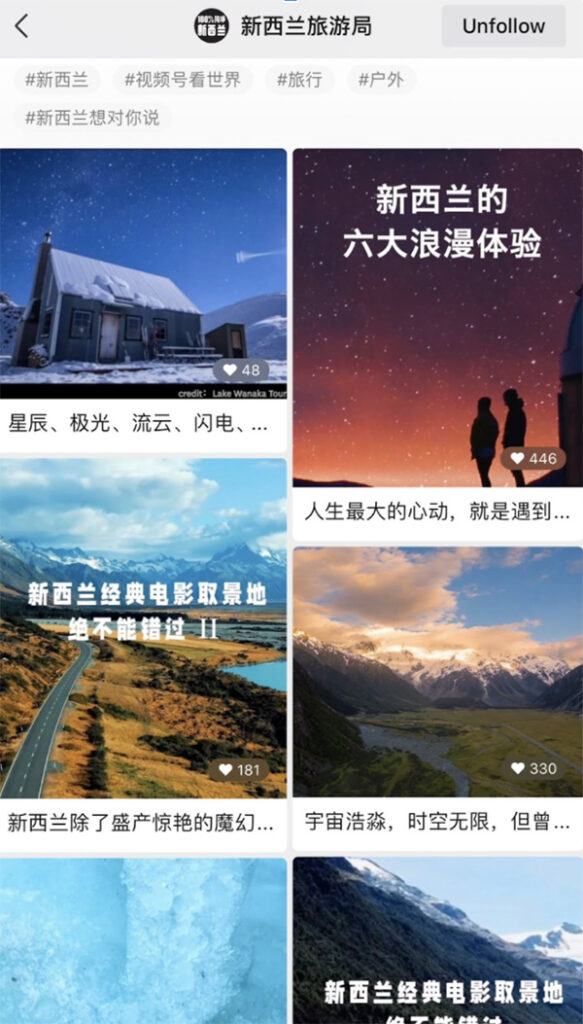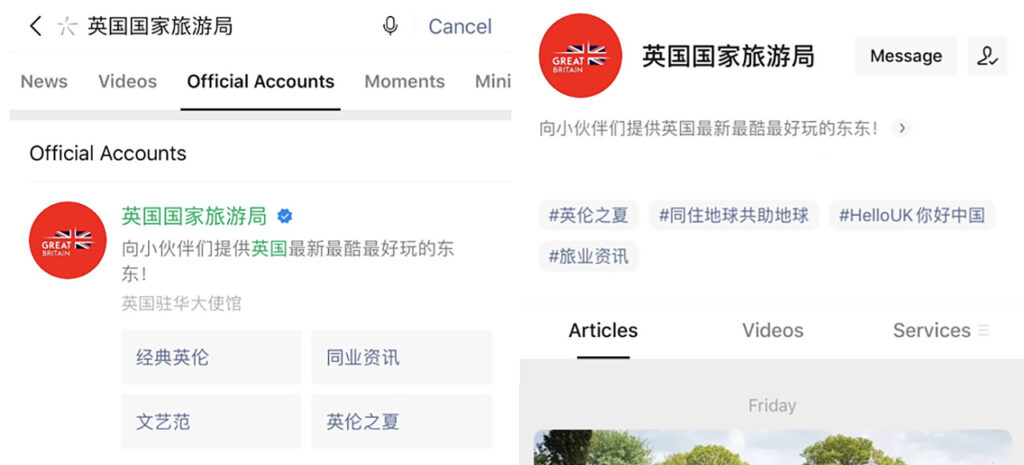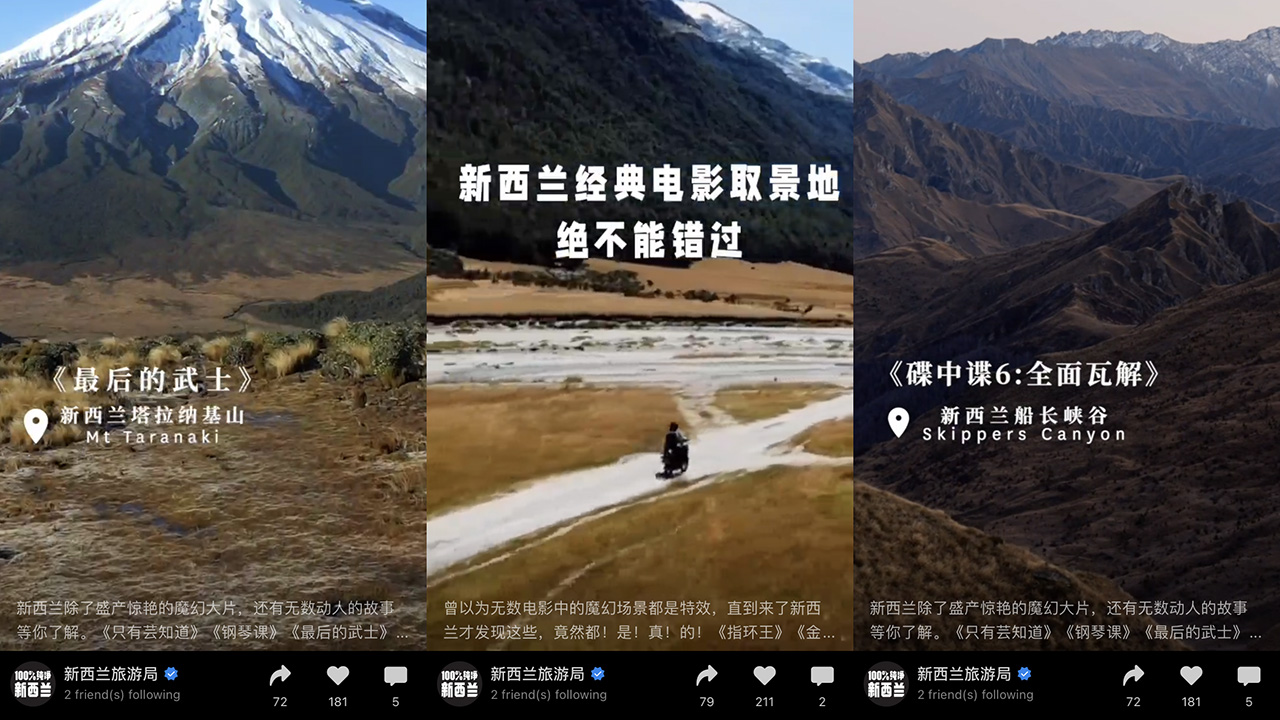Consider the following: 60 percent of time Chinese netizens spend online takes place within Tencent’s ecosystem. Over the past decade, its signature platform, WeChat, has become the essential way for international tourism players to reach the globe’s largest outbound market.
With more than a billion monthly active users, WeChat’s centrality to China marketing strategies isn’t in doubt. What’s changing is the importance of short-video and livestreaming tools now embedded in the app, the slew of advertisement styles available to brands, and greater integration with Tencent’s other services.
For travel stakeholders, understanding Mini Programs and WeChat Channels is important, but so are the promotions and tools capable of driving traffic to Official Accounts. It’s a point outlined by Tencent Senior Sales Manager Irene He in a recent webinar hosted by Dragon Trail International, a company whose WeChat resume over the past year boasts the Americas’ first destination livestream alongside PromPeru, launching Poland National Tourism Board’s Mini Program, and running Singapore’s B2B online roadshow.
Here are four takeaways from He’s presentation.
The post-pandemic Chinese traveler

Macau Tourism Board on WeChat
With 1.2 billion monthly active users, WeChat’s user data offers a clear picture of the desires and demographics of potential Chinese outbound tourists. Based on clicks and page save data, He identified the contingent most excited by the prospect of overseas travel as: 69 percent upscale consumers, 58 percent bachelor degree-holders, 62 percent from Tier 1 and Tier 2 cities, overwhelmingly between 25 and 35 years of age. The most commonly searched destinations are Macau (partly owing to it being open to Mainland tourists), Japan, South Korea, and Thailand.
Key quote: “People are still dreaming of going abroad even if they can’t book right now. We’ve seen the recovery internally and we can see what people are searching for and we can profile for frequent outbound travelers.”
Leaning into WeChat Channels

Tourism New Zealand on WeChat Channels
Tencent’s short-form video platform on WeChat has gained considerable traction since launching in early 2020 with more than 40 tourism boards currently active. Free to use, Channels is not only a good platform to gather and connect with fans, but can serve as a springboard to host livestreams, branding campaigns, and sales (which can be embedded as pop-ups within videos). To boost traffic, Tencent offers an array of advertising options — from interactive ad cards, to classic banner ads on users’ WeChat Moments (similar to Facebook’s Timeline), to encouraging users to “reserve” a spot on an upcoming livestream.
Key quote: “Promoting on WeChat Channels can be for branding and specific promotions. If you have a limited budget, you can start with a regular image/text ad. More advanced style is of a contract-buying type; it will have a higher clickthrough rate because the formats and styles are so new and they get more attention.”
Optimizing searchability

By connecting one’s account to relevant keywords, users can make the best use of their brand zones. Image: VisitBritain on WeChat
Tencent has been reassessing the functionality of searching inside its digital ecosystems and now considers it a new product type, though one that’s not commercialized. For tourism brands, connecting a WeChat account to associated keywords is a vital (and free) step to boosting discoverability. Brands can also register associative words and phrases so that when users begin typing, they are drawn to choose official accounts. Simply put, a WeChat account is only as good as its searchability.
Key quote: “For example, people have a tendency to search for airline tickets within the WeChat ecosystem. The online travel agencies cover these keywords so that their brand zones jump out when searched and users find them directly.”
Unlocking Tencent’s IP

Tencent’s vast ecosystem offers partners opportunities to establish Chinese connections across an array of sectors. Image: Quora
Tencent is far more than a digital platform operator. Its subsidiaries span the full breadth of the entertainment industry from Tencent Video, China’s top performing streaming service with 123 million paying members, to Tencent Sport, broadcaster of the FIFA World Cup, the NBA, and Formula One, to Tencent Music, which runs top platforms and hosts live events. This offers brands the opportunity to build strong connections with Chinese consumers across a broad spectrum of demographics and tastes. Collaboration options span short-term endorsements, event sponsorships, e-commerce events, among others.
Key quote: “From awareness to trust, we help to build a longer emotional bond between emotions and brands. Showing an ad today and asking for a conversion is not going to happen. We can tell consumers about brands not only through direct ads but through creative ads.”



